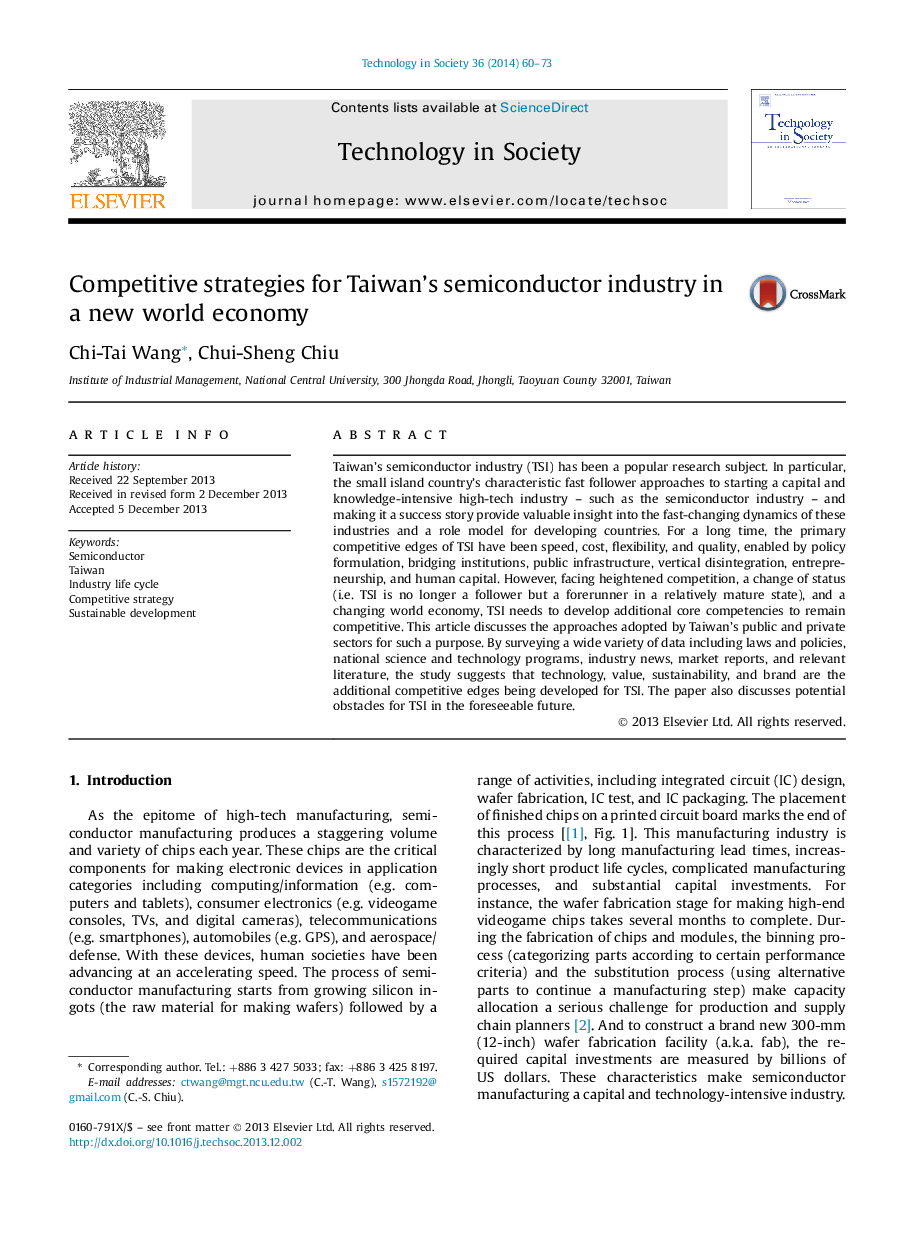| Article ID | Journal | Published Year | Pages | File Type |
|---|---|---|---|---|
| 6851734 | Technology in Society | 2014 | 14 Pages |
Abstract
Taiwan's semiconductor industry (TSI) has been a popular research subject. In particular, the small island country's characteristic fast follower approaches to starting a capital and knowledge-intensive high-tech industry – such as the semiconductor industry – and making it a success story provide valuable insight into the fast-changing dynamics of these industries and a role model for developing countries. For a long time, the primary competitive edges of TSI have been speed, cost, flexibility, and quality, enabled by policy formulation, bridging institutions, public infrastructure, vertical disintegration, entrepreneurship, and human capital. However, facing heightened competition, a change of status (i.e. TSI is no longer a follower but a forerunner in a relatively mature state), and a changing world economy, TSI needs to develop additional core competencies to remain competitive. This article discusses the approaches adopted by Taiwan's public and private sectors for such a purpose. By surveying a wide variety of data including laws and policies, national science and technology programs, industry news, market reports, and relevant literature, the study suggests that technology, value, sustainability, and brand are the additional competitive edges being developed for TSI. The paper also discusses potential obstacles for TSI in the foreseeable future.
Related Topics
Social Sciences and Humanities
Business, Management and Accounting
Business and International Management
Authors
Chi-Tai Wang, Chui-Sheng Chiu,
